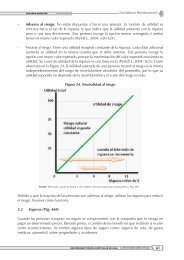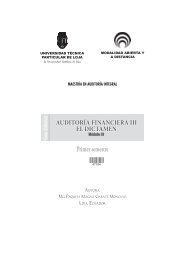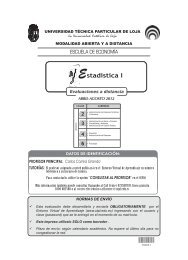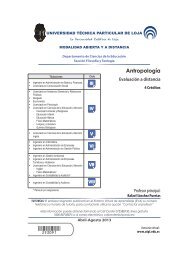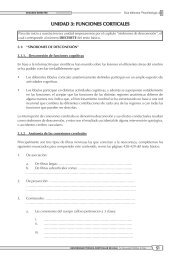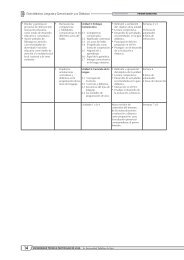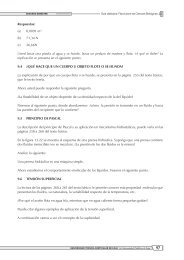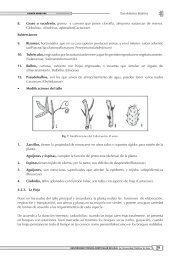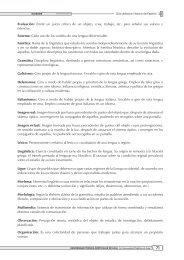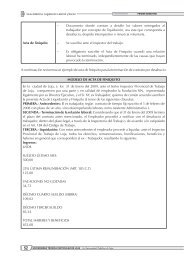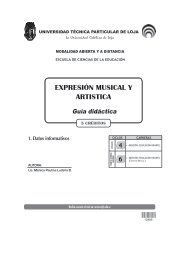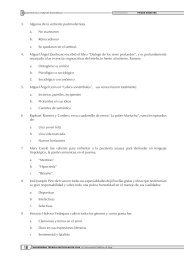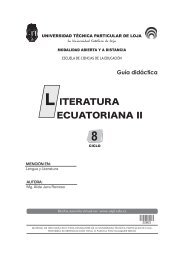Communicative Grammar III - Bad Request - Universidad Técnica ...
Communicative Grammar III - Bad Request - Universidad Técnica ...
Communicative Grammar III - Bad Request - Universidad Técnica ...
You also want an ePaper? Increase the reach of your titles
YUMPU automatically turns print PDFs into web optimized ePapers that Google loves.
Guía didáctica: <strong>Communicative</strong> <strong>Grammar</strong> <strong>III</strong><br />
5. General guidelines for the study<br />
This course provides you with attractive didactic materials for study. You have a textbook which includes<br />
a CD. The textbook contains numerous helpful explanations related to grammar as well as a plethora of<br />
exercises for practicing what you learned. The CD is a resource that should be used in some exercises of<br />
the textbook. In addition, a didactic guide has been written. The purpose of this document is to act as<br />
an instructor that leads you to work with the textbook. The didactic guide contains also some additional<br />
exercises for further practice and revision.<br />
Academic performance is also an essential aspect in your studies and success. For a better academic<br />
performance in this distance course, you can consider the following recommendations:<br />
• Read the charts about the evaluation system (section 6.3) in order to have a clear idea of the<br />
aspects to be considered by your instructor when grading your work. This will help you to improve<br />
your academic performance.<br />
• Organize your time in a way that you can dedicate at least one hour a day to study the contents<br />
of this course.<br />
• Advance sequentially throughout the units and do not let work accumulate for the end of the<br />
bimester.<br />
• Carefully read the didactic guide and the textbook.<br />
• Do the exercises in the textbook as well as the review tests, and do the self-evaluations in the<br />
didactic guide.<br />
• Take notes of the most important points or those aspects that are difficult to remember. You can use<br />
summaries, outlines, charts, tables and other resources that allow you synthesize the information.<br />
• Work on the distance evaluations (one each bimester). Remember that distance evaluations are a<br />
learning strategy and preparation for the on-site evaluations.<br />
• Participate in the Virtual Learning Environment (EVA). On EVA, you will interact with your instructor<br />
and peers. Write a message if you want to share something relevant to the course with your class.<br />
Likewise, you will be able to express your opinions in the forums.<br />
• Attend videoconferences (one each bimester), in which the instructor will explain the main topics.<br />
You may participate by asking questions.<br />
• Read the section called “Planning of the student’s work”, which is included in this didactic guide.<br />
This is a very important part because it gives you a general view of the goals that you are going to<br />
attain during this course. This part also allows you to see the contents to be studied and the way<br />
you will be evaluated.<br />
• If you need help regarding this <strong>Communicative</strong> <strong>Grammar</strong> <strong>III</strong> course, please contact your instructor<br />
by phone, e-mail or EVA. These tutorials will also be very useful in your learning process.<br />
UNIVERSIDAD TÉCNICA PARTICULAR DE LOJA La <strong>Universidad</strong> Católica de Loja 8



